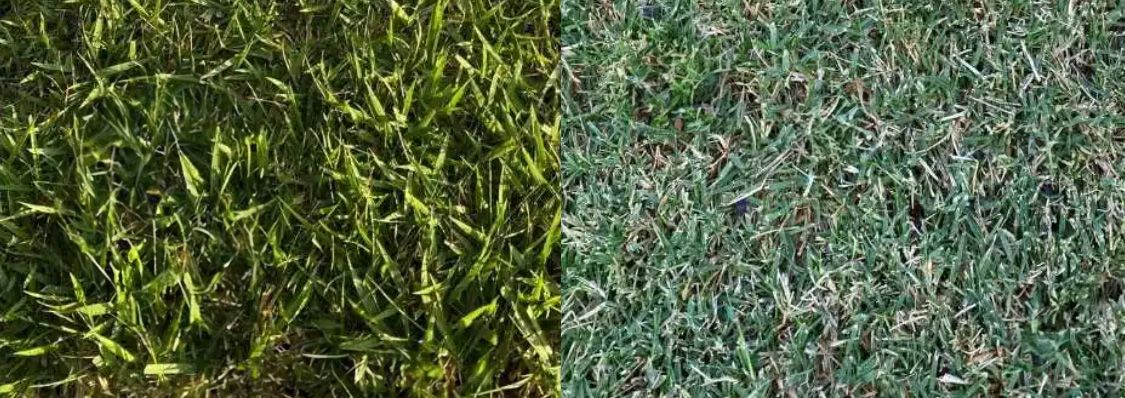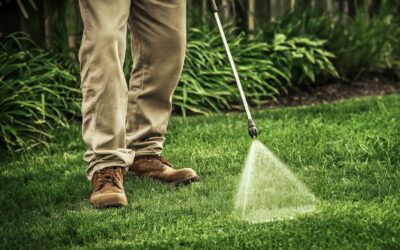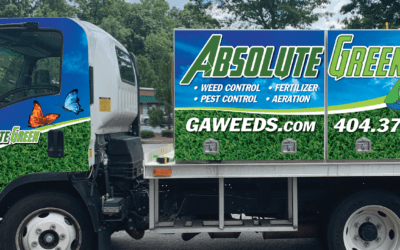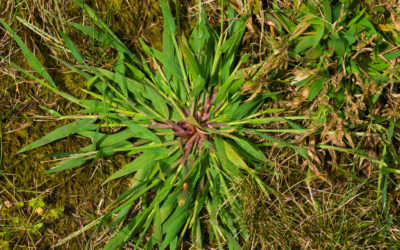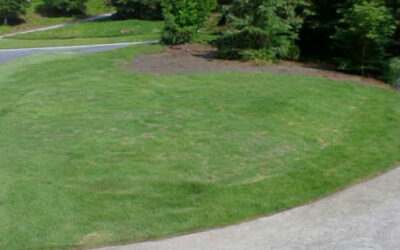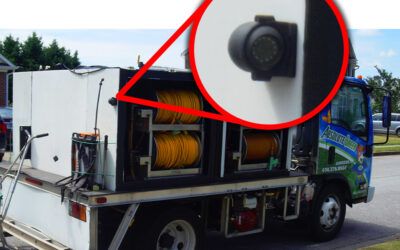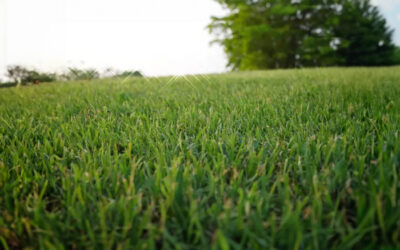Zoysia vs Bermuda
“What kind of grass should I put in my yard?”
Of all the grasses that we see in Georgia lawns, Bermuda is by far the most common, and in second place is Zoysia. These two types of grasses have different benefits and detriments, and you should weigh the pros and cons before deciding which one is right for your lawn. Choose the wrong type, and your grass will struggle and wither away.
Bermuda and Zoysia
Both Bermuda and Zoysia are warm-season, perennial, creeping grasses. This means they grow vigorously during the summer months and go dormant during the winter, do not have to be reseeded each year, and spread through sending out runners to new areas in search of sunlight and nutrients. However, the differences between these two grasses are vast and important to consider.
Bermuda Pros
1. Thriving in Georgia Heat
Bermuda grass thrives in the brutal Georgia heat, growing vigorously during the summer months. Its heat tolerance and rapid growth make it an excellent choice for warm climates.
2. Establishes Quickly
One of Bermuda grass’s standout features is its self-healing ability. When damaged, whether from foot traffic, pets, or yard activities, Bermuda grass can quickly repair itself. The rhizomes and stolons work together to fill in damaged areas, ensuring the lawn remains lush and green. This resilience makes Bermuda grass a good, durable option for households keeping to a proper fertilization and weed control schedule.
3. Durability
Its ability to withstand heavy foot traffic makes it ideal for active lawns. Bermuda grasses were popular as turf on sports fields before being popularized for residences.
Bermuda Cons
1. Requires Frequent Mowing
To maintain its appearance, Bermuda grass needs to be mowed frequently. Ideally, it should be cut 1-2 times per week to avoid scalping and to keep it looking lush.
2. Sunlight Dependency
Bermuda grass needs full sunlight to grow well, that’s 8 hours of sunlight a day. Even small amounts of shade can lead to thinning and poor health. Not a great choice for yards with a lot of trees.
3. Invasive to Adjacent Gardens
Because of its quick growth, Bermuda can invade your gardens or anywhere else on the ground where its not supposed to be. It must be properly managed.
Zoysia Pros
1. Drought Resistant
Zoysia is generally more drought-resistant than Bermuda, which may be a deciding factor for people who go on frequent trips away from home and can’t water your lawn regularly.
2. Low-Maintenance
Zoysia needs less frequent mowing and edging than Bermuda.
3. Shade-Tolerant
Compared to Bermuda which needs 8 hours of sunlight a day to grow, Zoysia needs only about 6 hours of direct sunlight daily. However, the most shade tolerant grass available is St. Augustine.
Zoysia Cons
1. Upfront Cost
Zoysia sod costs more than bermuda on average to install in your yard.
2. Slower Establishment
Before Zoysia can be treated, we wait at least 12 months.
3. Home Owners Association Compliance
Often, HOAs want the lawns of the houses in the neighborhood to be homogenous, and Zoysia, which has a different appearance to the more common Bermuda, may stand out.
Other Grasses
Though Bermuda and Zoysia grasses are the most common in Georgia lawns, we see all sorts of grasses when we go out to treat different properties. These include Fescue, Centipede Grass, and St. Augustine Grass, each with their own advantages and disadvantages. The choice for what type of grass is right for your lawn depends on what’s most important to you, and the characteristics of your property.

